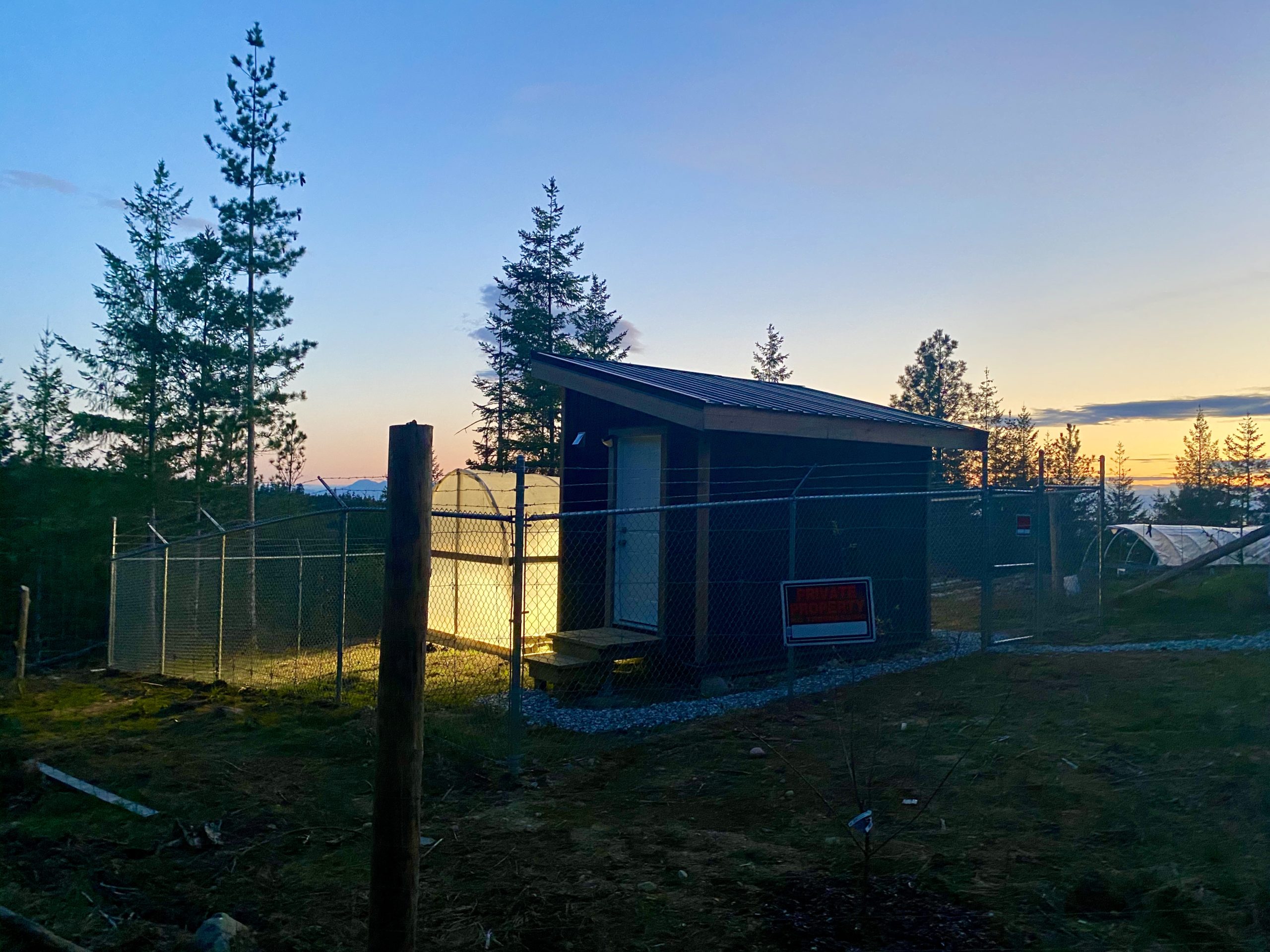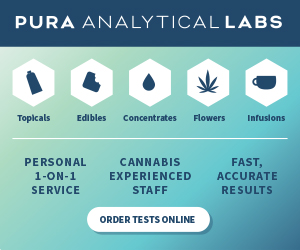
| COMPANY: | Weathered Islands Craft Cannabis |
| LICENCE TYPE: | Nursery |
| APPROACH: | Outdoor, hoop house and indoor production facilities |
| TIMELINE: | ~6 months (November 2019 to March 2020) |
| COST: | $35,000 |
| FACILITY: | Indoor, hoop house |
Weathered Islands Craft Cannabis is a cannabis nursery based on BC’s Texada Island, focused on supplying outdoor genetics for the commercial and personal cultivator market in Canada.
The seventh nursery to be licensed in Canada and the fourth in British Columbia, Weathered Islands is a three person team of Collier Quinton, a long time cannabis grower and resident of Texada, his sister Camille Quinton, who manages the business and handles marketing, along with Jeff Gontovnick, who is focused on business development and regulatory compliance.
Our goal is to provide genetics that are acclimatized to the southern Canadian climate, easy to grow and will produce a consistent yield and good THC levels.”
Supply for robust outdoor genetics
Weathered Islands bills itself as focusing on Legendary Texada Genetics, especially those bred for success outdoors in Canada’s climate, and plans on soon beginning to supply both commercial growers as well as home growers with unique, robust outdoor genetics.
Collier, the nursery’s Master Grower, has lived on Texada island for 25 years, working in the thriving medical and legacy cannabis community there and helping to develop several well known outdoor Canadian varieties. Because of this, Weathered Islands will soon be offering many of these genetics for the recreational market from their small outdoor/hoop-house and indoor production facilities.

Texada Island – the Humboldt of Canada
The long-time cannabis grower and breeder says the island has long served as a hotbed for cannabis in Canada, drawing in cannabis enthusiasts and helping to develop numerous well known strains.
“Many people consider Texada Island to be like the Humboldt County of Canada. Humboldt county of course being one of the epicentres of the cannabis world down in the U.S. Texada Island is very similar. It has played a major role in the development of outdoor cannabis strains, the most famous of them being the Texada Timewarp, which is internationally known and has won many awards.”
It has played a major role in the development of outdoor cannabis strains, the most famous of them being the Texada Timewarp, which is internationally known and has won many awards.
“People who are interested in cannabis are simply attracted to Texada. People would come and bring new strains, then there would be breeding between new genetics and old genetics and a lot of successful breeding programs were done because of that.”
Future in the regulated market
After spending many years growing and breeding cannabis, Collier says he realized that the plant’s future development lay squarely within Canada’s regulated market and was eager to be on the forefront of that market.
Gontovnick says that with Quinton having such deep roots on Texada island, which has a long history of cannabis production, their team had been aware of opportunities in the cannabis space for some time. It wasn’t until the new regulations came out in 2018, that they began seriously considering collaborating to apply for a license together.
Nursery pivot to save on costs
Although the team had originally looked at applying for a micro cultivation licence, Gontovnick says the May 2019 rule change that required applicants to have a fully constructed facility prior to applying had them pivot to a nursery, to save on costs and make the best use of Collier’s years of experience with breeding.
It’s funny, when you start something like this, you imagine Health Canada as this big, bureaucratic beast that is designed to kind of reject your application and your licence, but it ended up being quite smooth and everybody we worked with was super helpful.”
They began construction of their small indoor propagation room, as well as a hoop house, before finally applying to Health Canada for a licence in November 2019. Despite concerns that the process would be lengthy and cumbersome, Gontovnick says he was pleasantly surprised at the relative ease, and even the quick issuance of their licence.
“I have to say, Health Canada was actually super helpful through the process,” he says. “It’s funny, when you start something like this, you imagine Health Canada as this big, bureaucratic beast that is designed to kind of reject your application and your licence, but it ended up being quite smooth and everybody we worked with was super helpful.”
Health Canada ramped up in March
Originally, Gontovnick said they had projected not getting their licence until mid summer, with a plan to not really begin to serve the market until later in the year or in the spring 2021 growing season, but says he saw a great deal of activity from the regulator in early March that he suspects was Health Canada trying to expedite smaller licenses before their pivot to handling COVID-19.
I think they were really trying to expedite as many micros and nurseries as they could, because obviously they require less on the admin side than say a full LP.
“That last two weeks (of March) was really a flurry of activity from Health Canada,” says Gontovnick. “They got back with our RMI, they identified a few specific things they needed, we would get that to them and they would respond very quickly, just to make sure we were able to get our licence by March 27. I think they were really trying to expedite as many micros and nurseries as they could, because obviously they require less on the admin side than say a full LP.
“Then the CRA has been fantastic, too. We connected with them as soon as we were licensed and they issued a temporary six month licence to operate before they will come and give us an on-site inspection.”
Focus on supply of robust outdoor genetics
Now that they are fully licensed, Weather Islands says they will first begin focussing on supplying commercial growers, especially those seeking robust outdoor genetics, and then will begin discussing with provinces about getting those same products into the consumer supply chain.
“We really want to focus on the outdoor grower,” says Gontovnick. “Commercial cultivators, from micros to LPs, and eventually the home grower. Our goal is to provide genetics that are acclimatized to the southern Canadian climate, easy to grow and will produce a consistent yield and good THC levels.”
Watching provincial appetite for live plants and seeds
“Longer term, we’re excited to see what happens with the home growing market. Eventually the provincial distribution could change to allow the ability to ship plants direct to consumers, or maybe even the option for farm-gate sales which would change the game.
“It’s pretty cool how the legal framework allows everybody to have their four plants. There’s a lot of potential home growers who would be interested in trying it out, and I think there’s a real opportunity in the market for high quality outdoor cultivars. But we will have to have some conversations with the provincial distributors about their appetite to carry live plants and seeds.”
There’s a lot of potential home growers who would be interested in trying it out, and I think there’s a real opportunity in the market for high quality outdoor cultivars.












